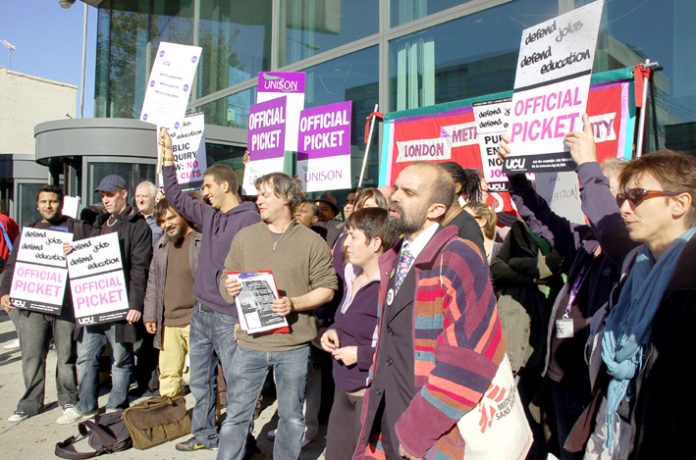
The UK has dramatically slumped to the bottom of international education tables, the University and College Union stressed today.
In the past twelve years it has been overtaken by countries such as Portugal, New Zealand, Austria, Switzerland, Korea, Ireland, Greece, Hungary and the Czech Republic.
The news comes on the day the UCU launches a cross-party group in Westminster to put UK education back on the map.
UCU analysis of the percentage of young people in education has revealed that the UK has slipped from the comfort of mid-table into the relegation zone of the table for developed countries.
The countries with the lowest percentage of young people in education in the developed world are now Turkey, Mexico, the UK and Luxembourg (figures for Japan and Canada were unavailable).
The remaining 24 developed countries have a higher percentage of young people in education than the UK.
Of equal concern is the fact the countries in the ‘second tier’ – partner countries of the Organisation for Economic and Co-operation and Development OECD – Israel, Russia, Brazil, Chile, Estonia and Slovenia also have a higher percentage of young people in education than the UK and, like the rest of the developed world, are seeing those percentages increase.
UCU believes a real cross-party consensus is needed if the UK is to avoid the indignity of becoming a country with first-world aspirations but third-world levels of participation in education.
The union says that the old order of an education for the elite is no longer a model for success and today’s study proves how urgently education needs to be put back at the top of the agenda.
UCU is starting that debate with the formation of the Make Education Count Westminster network that will bring together key players from across the political divide including MPs, peers, local politicians, unions and other key stakeholders.
Universities and colleges are worth £87bn a year to the UK economy and the union believes that more must be done to ensure that all young people have the opportunity to benefit from them.
UCU general secretary, Sally Hunt, said: ‘This shocking analysis brings home just how much the UK has to do if it wants to remain a key player in the new global knowledge economy.
‘We cannot rely on our proud history when it comes to educational achievement or innovation.
‘We have to face up to the fact that we cannot remain a first-world country with third-world levels of participation in education.
‘Other developed countries are pulling away from us and the developing nations are catching up and looking like they will over take us.
‘The figures should worry us all.
‘Sticking plaster policies from parties looking for votes just will not do.
‘We need a genuine cross-party consensus on the issue.
‘We are delighted to be launching our “Make Education Count Westminster network” this evening and look forward to thrashing out the best way forward for the UK with politicians from all parties who have a genuine passion for education.’
The study analysed tables of the percentage of full-time and part-time students aged 15-19 in public and private institutions and students aged 20-29 in OECD countries in 1995 and 2007.
Key findings include:
• 15-19 year-olds
In 1995 the UK was ranked 19th out of the 30 OECD countries with 72 per cent of 15-19 year-olds in education – the same proportion as America – and just two per cent below average.
However, by 2007 the UK only had 71 per cent of 15-19 year-olds in education and was down to 26th out of 30, ahead of only Mexico and Turkey as data was unavailable for Japan and Canada.
• 20-29 year-olds
In 1995 18 per cent of 20-29 year-olds in the UK were in education, twelve years later (2007) the figure had, like for the 15-19 year-olds, dropped by one per cent (down to 17 per cent for 20-29 year-olds).
The drop, coupled with other countries’ improved participation rates, meant that the UK has dropped from a mid-ranking 15th out of 30 in 1995 down to 25th out of 30 in 2007.